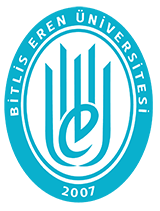| dc.description.abstract | This study aimed to develop a seed-based in vitro propagation protocol for Muscari latifolium to ensure large-scale plant production while minimizing the impact on wild populations. Utilizing seeds as initial explants offers a sustainable and non-destructive alternative to bulb-based methods, promoting genetic diversity and supporting conservation efforts. Sterilization was optimized using 20% Sodium hypochlorite (NaOCl) for 30 minutes, achieving 100% decontamination and 100% germination. The most effective bulblet induction was observed on MS medium supplemented with 1.0 mg/l 6-Benzylaminopurine (BAP), yielding the maximum average bulblet number (21.06 per explant) and optimal bulblet length (0.71 cm), significantly outperforming other cytokinin treatments, including Kinetin (KIN). In contrast, the combination of 1.0 mg/l BAP and 1.0 mg/l α-Naphthalene Acetic Acid (NAA) also demonstrated substantial bulblet production, albeit at a lower average number (5.60 per explant), but with enhanced bulblet diameter (0.69 cm) and a notable rooting rate of 75%. While BAP alone proved superior for shoot multiplication and bulblet induction, adding NAA improved bulblet morphology and rooting efficiency, emphasizing the importance of cytokinin-auxin synergy. Rooting was most successful (100%) with 2 mg/l indole-3-butyric Acid (IBA), producing robust roots, while acclimatization achieved a 47% survival rate using a sterile peat-soil mixture. The developed protocol provides a reliable, non-destructive method for the ex situ conservation and horticultural production of M. latifolium, leveraging seeds to reduce the need for bulb collection. This approach holds promise for propagating other endangered geophytes with similar challenges. | tr_TR |














